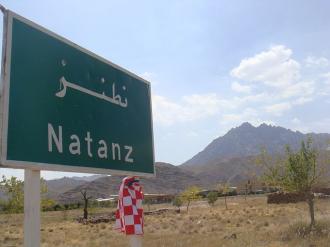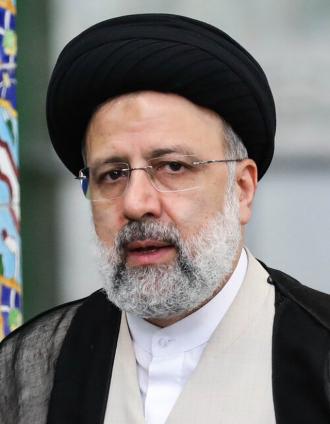At Mount Sinai the Torah describes how, Moshe brought forth the people from the camp toward G-d. Rashi says Hashem and the nation went out towards each other like a bridegroom greeting his bride.
Rav Samson ben Zadok, the devoted disciple of the famed 13th century rabbinic figure and Tosafist, Rav Meir of Rottenberg, (the Maharam), in his seminal work, Tashbatz, records in the name of his famed teacher that many of the traditions associated with the marriage ceremony are patterned on the 'marriage' that took place between G-d and His nation at Mount Sinai.
The etching of G-d’s words onto the Two Tablets is reminiscent of the Kesuba, the marriage contract. The ten men required to be in attendance at the blessings under the canopy correspond to the Ten Commandments. The candles remind us of the lightning and fire that was present during the revelation at Sinai. The very expression a groom says to his bride: הרי את מקודשת לי (בטבעת זו) כדת משה וישראל — Behold you are consecrated unto me (with this ring) in accordance with the law of Moshe and [the People of] Israel, accentuates this parallel between the union of every Jewish couple and our nation’s ‘marriage’ to G-d at Mount Sinai. (תשב"ץ אות תסד-תסה)
Others suggest that the חופה, the bridal canopy, is modeled after Mount Sinai itself that G-d 'suspended over them like an inverted basin’ that served as the bridal canopy for His marriage to His beloved nation. (שיטה מקובצת בשם גליון תוס' כתובות ז:)
The Talmud teaches that the ‘primary reward for participating in a wedding is for the ‘words’ that gladden the Chosson and Kallah’. (ברכות ו: ורש"י שם)
Might there be a precedent at Mount Sinai for delivering inspiring words on behalf of the couple that brings them joy?
A phenomenon took place at Mount Sinai when the nation transcended normal limitations of the body and the ‘sounds became visible’.
The renowned disciple of the Vila Gaon, Rav Chaim of Volozhin, in his seminal work, Nefesh HaChaim, explains this supernatural quality.
We are accustomed to thinking that our eyes can sense that which is more ‘real’ and ‘tangible’, whereas our ears can feel that which is less physical — sound.
But that is only true because of our inability to pare away the physical layers upon our eyes. At the revelation G-d removed those barriers permitting us to ‘see’ true reality — the ‘inner essence’ that belies every material entity and fuels that ‘artificial’ container’s shelf life.
The ears that normally detect the more ephemeral ‘matter’ — sound, now at the revelation at Sinai, would be used in its primary utility to comprehend that which is ‘unreal’ — physicality.
Although every bride and groom regale in the joy of their physical proximity and closeness, the true joy that must generate from them is in appreciating their pnimiyus — their inner essence, and elevated character that defines their true being that is now united in working in consonance to bringing forth the divine presence inherent within them.
If we successfully convey in describing their spiritual character with thoughtful דברים — ‘words’, [sharing the same root as the word for ‘authentic’ matter — דבר,] we will merit to bring them genuine and lasting ‘joy’! It is only through the connection to G-d of our eternal essence — our soul, that we can sense real and eternal happiness.
The Tikunei Zohar reveals that it is for this reason the word בשמחה — with joy, shares the same letters of the word מחשבה — thought. It is our mindful awareness of who we really are that can bring us authentic joy!
I pen these words on the last day of the marvelous seven day of festivities we held, not only over the marriage of my son Mutti to Daniella, but more significantly celebrating their greatness of character and personal accomplishments, that they now bring to their new life and future together.
During the many meals tendered during the Seven Days of Partying, beautiful sentiments and ‘words’ were shared by family and friend and a remarkable story was told that brings this very message, literally, home.
Both the Chosson and Kallah had been pursuing their match for some time without success.
Daniella’s father is close to many great rabbis and was able to gain a personal audience with Rav Chaim Kanievsky in the hope of securing a bracha and a promise his daughter would find her bashert soon. He brought Daniella with him, but she waited in the car.
During that meeting Rav Chaim twice reiterated emphatically, “B’Karov!”
Daniella’s dad left heartened that his daughter would indeed ‘B’Karov’ — very soon, find her prince.
Despite his hopes several years passed before Daniella met Mutti, and now the rest is history. Her dad was thrilled his daughter had finally arrived at the promised land, but the thought of the unrequited promise from the tzaddik years before, that a shidduch was b’karov, still lingered in his heart. While getting acquainted with his new chosson, he shared this story with him adding that it still troubled him.
Mutti began recollecting that he too had visited Rav Chaim years earlier, also seeking a blessing to find his soul mate.
It then struck him like a lightning bolt.
Mutti had been acquainted with Daniella’s father several years earlier through a common business associate. He suddenly remembered that as he was waiting to gain entry to the Rav, Mr. Judah Perlstein, Daniella’s dad, was meeting with the Rabbi. Calculating the years he realized that they had been right next to other during that very meeting.
Rav Chaim’s emphasis that the match was ‘B’Karov’ was not meant to indicate that it would be ‘soon’, as they had thought, but rather the fact that the prospective chosson was standing ‘B’karov Mamesh’ — in ‘close’ proximity to his future father-in-law!
Our soul dwells in a physical container that often blocks us from perceiving the real world around us with visual acuity. Nothing is ever far from us. It is right there. We only need to pare away the levels of physicality so that our ‘eyes’ can see with absolute clarity that all we pine for — true connection, is right there before our very own eyes!
The Lubavitcher Rebbe always signed off his talks with his clarion call that the Moshiach and the redemption arrive ‘B’Karov Mamesh!’.
Perhaps he was teaching us that we are not wishing for something in the far-off distance to come quickly, but rather that if we rise to the challenge in peeling away the layers of materialism that blocks our vision, we will discover that the spiritual world we pine for is right there close by — B’Karov Mamesh!
באהבה,
צבי יהודת טייכמאן















